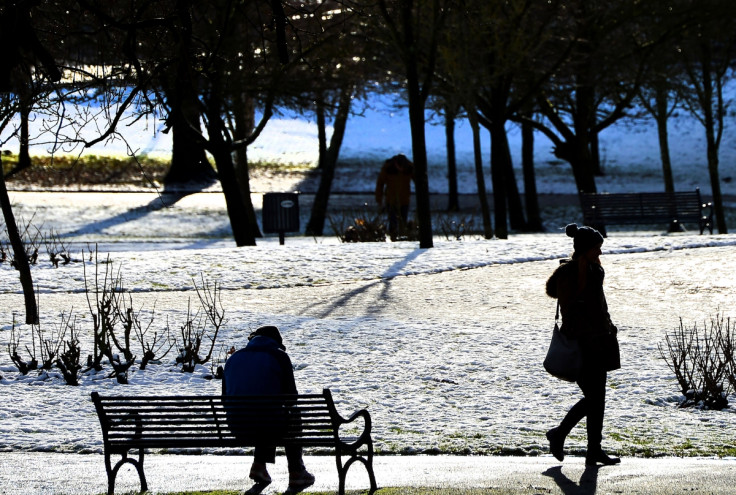UK weather: Britain braced for 'Arctic freeze' as snow and ice warnings issued

After an exceptionally mild winter season, an Arctic airmass is due to bring freezing temperatures to the UK this weekend. Severe weather warnings for ice and snow were issued in Scotland and northern England on Friday 8 January.
The yellow 'be aware' warning for ice will then affect parts of Wales and lower regions of England on 9 January, marking a cold start to the weekend. The sudden drop in temperatures could be the first of the "Arctic freeze" that some weather experts predicted for this winter.
A chief forecaster for the Met Office said: "A cold air mass covers northern Britain. Under clear skies rapidly falling temperatures will lead to the formation of icy patches on untreated surfaces, especially where rain, sleet or snow has fallen or where there is seepage of water as a consequence of wet weather."
Weather experts have warned of a risk to driving conditions during the icy conditions, particularly in Scotland and northern England. Sleet and snow is expected for much of this region during the first half of 8 January, before clearing east by the evening. Up to 10cm of sleet and snow could accumulate on ground above 200-300m, with 1-3cm likely to settle on lower grounds.
Temperatures in Scotland and northern England are likely to fall to as low as 0C in the early hours of 9 January, with maximum daytime temperatures of only 4C predicted for Scotland. Sleet and snow has been predicted even at lower ground levels.
The colder weather is then expected to spread southwards from 11 January onwards, with night-time temperatures falling as low as 2C in London. The Arctic spell is likely to fall at the same time as showery conditions, with heavy rain and wind for many, particularly those in the south-west and north-east. As temperatures drop further during the week, some snowfall could be seen even in southern parts of the country.
Weather forecasters at the Met Office said: "Unsettled and sometimes windy weather with mainly westerly winds will probably become re-established across much of the UK, although the colder conditions may be hard to shift."
The looming freezing temperatures contrast greatly with the above-average temperatures experienced so far this winter. December was noted as the warmest December month on record, with the mean temperature for the month being 4.1C above the average.
The temperature drop could be associated with forecasters' predictions of this winter being the "coldest winter in 50 years". Weather experts feared a repeat of 1963, when the worst winter in history saw temperatures plunge to near -20 in January.
© Copyright IBTimes 2025. All rights reserved.





















